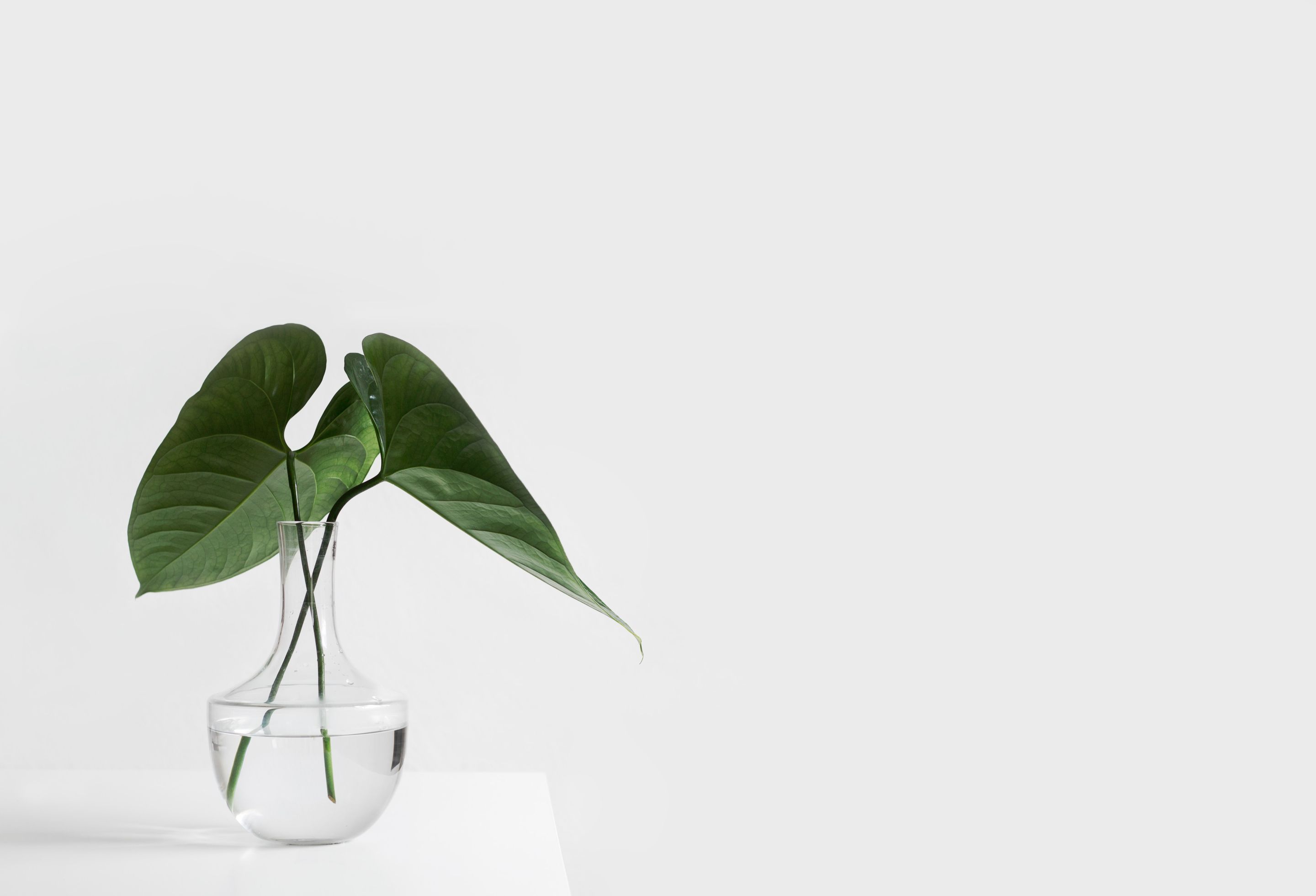Less is more
May 30, 2023 — Dipanjan Bosu
Are you tired of being weighed down by all the stuff in your life? Do you find yourself buried under piles of clothes, gadgets, and trinkets, feeling suffocated by the sheer amount of clutter surrounding you? If so, you're not alone. In today's fast-paced world, it's all too easy to accumulate more than we need, to buy into the idea that owning more things will bring us more happiness. But what if that's not the case? What if we've been sold a bill of goods, and the real secret to a fulfilling life is actually...less?
Enter minimalism––the philosophy that's taking the world by storm, one decluttered closet at a time. At its core, minimalism is all about living with intention, about stripping away the excess to reveal what truly matters. It's not about deprivation or asceticism; it's about creating a life that's focused on the essentials. By paring down our possessions and commitments, we can create more space for the things that bring us joy––whether that's spending time with loved ones, pursuing our passions, or simply taking a deep breath and enjoying the present moment.
Sounds too good to be true? It's not. Minimalism is a powerful tool for anyone looking to simplify their life and find more happiness in the process. So why not give it a try? Who knows, you might just discover that less really is more.
Picture this: you wake up in the morning and walk into your living room, expecting to be greeted by your usual cluttered mess of coffee mugs, magazines, and random knickknacks. But instead, you wake up to a clean, serene room with ample sunlight and a gust of fresh air. No, you're not dreaming––you've just embraced the philosophy of minimalism.
What is minimalism, exactly? Isn't it just for people who live in tiny houses and own three pieces of furniture? Not necessarily. At its core, minimalism is about simplifying your life and finding joy in the essentials.
For some, this means owning as few things as possible––and sure, that can be part of it. But it's not just about living like a monk or denying yourself pleasure. Instead, minimalism is about being intentional with your choices and letting go of the things that don't add value to your life.
Let's debunk some common misconceptions about minimalism
Misconception #1 : Minimalism means living in an empty, sterile space.
Reality: Although minimalism emphasises on keeping your room in order and clean, that doesn't mean you have to live in a barren wasteland. You can still have a warm, welcoming home filled with things that bring you joy and serve a purpose.
Misconception #2: Minimalism is only for people who can afford to buy high-end, expensive items.
Reality: While some minimalists do choose to invest in high-quality pieces that will last a long time, minimalism is really about being intentional with your choices and letting go of things that don't add value to your life. You don't have to spend a lot of money to live a minimalist lifestyle––in fact, it can often save you money in the long run!
Misconception #3: Minimalism means giving up all of your hobbies and interests.
Reality: Minimalism encourages you to prioritise which activities are essential and which are distractions. That could mean spending more time engaging with hobbies, interests, and relationships that are meaningful, and limiting or cutting out activities that waste your time and emotional energy. It's important to remember that minimalism can still leave room for joy and satisfaction, rather than a dull and uneventful life.
Overall, minimalism is a flexible philosophy that can be adapted to fit your individual needs and preferences. So don't let these misconceptions hold you back from exploring a simpler, more intentional way of living.
Benefits of minimalism
- More space, more time, more money
By simplifying our lives and letting go of excess stuff, we're able to free up time and energy for the people and experiences that bring us joy. Plus, by consuming less, we save money and can invest in things that enrich our lives.
- Improved mental clarity and reduced stress
Minimalism isn't just about tidying up your physical space, it can also declutter your mind! By letting go of the excess and focusing on what truly matters, you'll experience improved mental clarity and reduced stress. When you're not bogged down by the constant desire for more, you can free up some mental bandwidth and enjoy a simpler, more fulfilling life.
- Better relationships and a stronger sense of community
A decluttered physical and mental space can promote meaningful relationships and a sense of community. By living a simpler lifestyle, we have more time and energy to invest in our connections with others. Additionally, adopting sustainable habits not only benefits the environment but also strengthens our bond with the community as we work towards a better world together.
How to incorporate minimalism in your life
So, if you're ready to dive in the lifestyle , here are some tips to help you get started:
- Declutter your home
Let's face it––most of us have way more stuff than we actually need. But the thought of getting rid of things can be overwhelming. That's why it's important to take it one step at a time. Start with one room or one category of items (like clothes or books).
- Let go of attachment
One of the biggest challenges of minimalism is learning to let go of attachment to material possessions. We often invest emotional value in the things we own, but in reality, they're just objects. Practice detachment by reminding yourself that the memories and experiences associated with the item are what really matter, not the item itself.
- Cultivate gratitude
You’ll be surprised at how much lighter and more open your home feels after a good decluttering. Without the burden of extra items, you’ll feel a new found freedom and energy. Plus, simplifying your possessions means less to clean and organize, so you’ll have more time to focus on the things you truly love and enjoy.
- Start with little things
If the idea of going full-on minimalist feels too daunting, start with small changes. Maybe that means reducing your wardrobe down to a certain number of items, or committing to buying only what you need for a month. Remember, every little bit counts!
- Embrace the journey
Finally, it’s crucial to keep in mind that mindfulness is a continuous process and not a final destination. There will be ups and downs along the way, and that's natural. The key is to stay focused on your goals and to remember why you started in the first place.
- Choosing quality over quantity
In a world that values fast fashion it can be hard to follow minimalism. But a minimalist mindset encourages us to invest in high-quality, high-utility, durable products that will stand the test of time. By choosing items that are well made and built to last, we can reduce waste and save money in the long run.
- Embracing simplicity in all areas of life
Once your physical space is decluttered you go on simplifying your habits, routines, and lifestyle. This might mean eating simple, wholesome meals instead of complicated recipes, or prioritising rest and self-care over a busy social calendar. By focusing on the things that truly matter to us, we can create more space and time for the things that bring us joy.
- Finding joy in experiences rather than things
One of the biggest tenets of minimalism is the idea that experiences are more valuable than things. This means prioritising travel, trying new hobbies, and spending time with loved ones over accumulating material possessions. By focusing on experiences rather than things, we can create meaningful memories that last a lifetime.
Challenges in minimalism
But living a minimalist lifestyle isn't always easy. Here are some challenges you might face, and how to overcome them:
- Dealing with the pressure to consume and keep up with others
In a society like ours that promotes consumerism, it can be difficult to stick to a minimalist lifestyle. But remember, minimalism is a personal choice––it's not about impressing others or keeping up with trends. If you find yourself feeling pressured to consume or keep up with others, take a step back and remember why you started on this path. Focus on your own values and priorities, and don't worry about what others think.
- Coping with the discomfort of change
Change is never easy, and adopting a minimalist lifestyle can feel uncomfortable at first. But remember, discomfort is often a sign of growth. Take small steps towards your minimalist goals, and be gentle with yourself along the way. Celebrate your successes, and don't be too hard on yourself when things don't go perfectly.
- Navigating the ups and downs of a minimalist lifestyle
Living a minimalist lifestyle is a journey, not a destination. There will be times when you feel inspired and energized by your choices, and other times when you feel frustrated or unsure. That's all part of the process. Remember to be kind to yourself, and to stay connected to the reasons why you chose minimalism in the first place. With time and practice, living a minimalist lifestyle can become second nature––and bring you a whole lot of joy along the way.
Key takeaways
-
It may not be for everyone, but it's definitely worth considering if you're looking to simplify your life and find more joy in the essentials.
-
By focusing on quality over quantity, embracing simplicity in all areas of life, and finding joy in experiences rather than things, you can create a more fulfilling and sustainable life.
-
There will be challenges and discomfort, but remember it's a personal choice, where you decide what works best for you.
-
Take it one step at a time, be kind to yourself, and stay connected to your values and priorities.
-
At the end of the day, minimalism is about creating more space for the things that matter most: spending time with loved ones, pursuing your passions, or simply enjoying a moment of peace and quiet.
A minimalist mindset can help you focus on what truly brings you joy. So why not give it a try? You might just discover that less really is more.
